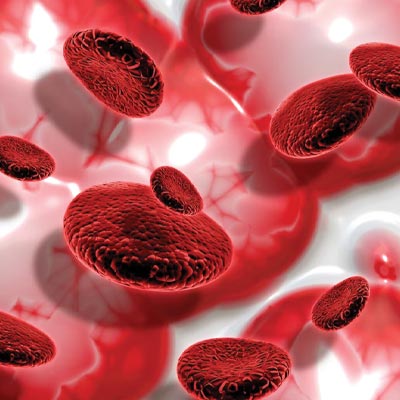Anemia is a common blood disorder that occurs when the body lacks enough healthy red blood cells or hemoglobin to carry an adequate amount of oxygen to the body's tissues. As a general physician, it's essential to understand anemia, its symptoms, causes, and preventive measures to provide proper care for patients. In this article, we'll explore the basics of anemia, common symptoms, underlying causes, and preventive strategies.
What is Anemia?
Anemia is a condition characterized by a decrease in the number of red blood cells or a lower-than-normal amount of hemoglobin in the blood. Hemoglobin is a protein in red blood cells that binds to oxygen and carries it throughout the body. When hemoglobin levels are low, the body's tissues and organs may not receive enough oxygen, leading to symptoms of anemia.
Symptoms of Anemia:
The symptoms of anemia can vary depending on its severity and underlying cause. Common symptoms may include
- Fatigue and weakness
- Pale skin and mucous membranes
- Shortness of breath
- Dizziness or lightheadedness
- Rapid or irregular heartbeat (palpitations)
- Cold hands and feet
- Headaches
- Chest pain
- Difficulty concentrating
- Craving for non-nutritive substances like ice, dirt, or clay (pica)
- Brittle nails
- Hair loss or thinning

Causes of Anemia
Anemia can have various causes, including
- Iron Deficiency: The most common cause of anemia worldwide is iron deficiency, which can result from inadequate dietary intake, blood loss (such as from menstruation or gastrointestinal bleeding), or poor absorption of iron from the diet.
- Vitamin Deficiencies: Deficiencies in other nutrients essential for red blood cell production, such as vitamin B12, folate, and vitamin C, can lead to anemia.
- Chronic Diseases: Certain chronic conditions, such as chronic kidney disease, inflammatory bowel disease, cancer, and autoimmune disorders, can interfere with red blood cell production or cause increased destruction of red blood cells.
- Blood Loss: Acute or chronic blood loss from injury, surgery, gastrointestinal bleeding, or menstrual bleeding can lead to anemia.
- Genetic Disorders: Inherited conditions such as sickle cell anemia, thalassemia, and hereditary spherocytosis can cause abnormalities in red blood cell structure or function, leading to anemia.
- Bone Marrow Disorders: Disorders affecting the bone marrow, such as aplastic anemia, myelodysplastic syndromes, and leukemia, can impair red blood cell production.
- Chronic Infections: Certain chronic infections, such as HIV/AIDS and tuberculosis, can suppress bone marrow function and lead to anemia.
Prevention of Anemia
Preventing anemia involves addressing its underlying causes and adopting healthy lifestyle habits. Here are some preventive measures
- Maintain a Balanced Diet: Eat a diet rich in iron, vitamin B12, folate, and vitamin C to support red blood cell production. Good dietary sources of iron include lean meats, poultry, fish, beans, lentils, spinach, and fortified cereals. Foods rich in vitamin B12 include meat, fish, eggs, dairy products, and fortified cereals.
- Consider Supplements: If you have a known deficiency in iron, vitamin B12, or folate, your healthcare provider may recommend supplements to help correct the deficiency.
- Manage Chronic Conditions: If you have a chronic medical condition such as chronic kidney disease, inflammatory bowel disease, or cancer, work with your healthcare provider to manage your condition effectively and minimize its impact on red blood cell production.
- Prevent Blood Loss: Take steps to prevent blood loss from injury, surgery, or gastrointestinal bleeding. If you have heavy menstrual bleeding, talk to your healthcare provider about treatment options to help manage it.
- Stay Hydrated: Drink plenty of fluids to help maintain adequate blood volume and prevent dehydration, which can exacerbate anemia.
- Avoid Excessive Alcohol Consumption: Excessive alcohol consumption can interfere with red blood cell production and lead to nutrient deficiencies, so it's essential to drink alcohol in moderation.
- Get Regular Check-Ups: Visit your healthcare provider regularly for routine check-ups and blood tests to monitor your blood counts and identify any potential signs of anemia or nutrient deficiencies early.
Anemia is a common blood disorder that can have significant effects on overall health and well-being. By understanding the symptoms, causes, and preventive measures for anemia, individuals can take steps to maintain healthy red blood cell levels and minimize the risk of developing anemia-related complications. If you experience symptoms of anemia or have concerns about your risk of anemia, consult with your healthcare provider for evaluation and appropriate management.
